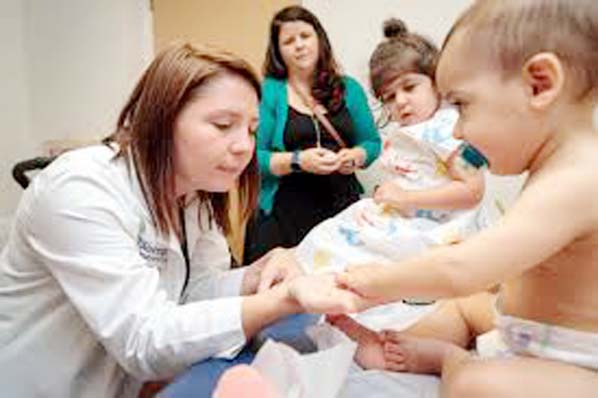
Life Desk :
Brain tumors were found to occur even in children with the common genetic syndrome known as neurofibromatosis type 1 (NF1), reveals a new study. Brain Tumors can Occur in Children With Common Genetic Syndrome
According to the researchers, this disorder is characterized by birthmarks on the skin and benign nerve tumors that develop in or on the skin. Brain tumors are also known to occur in children and adults with NF1.
‘Brain tumors can be confused with harmless bright spots. Therefore, a set of criteria have been developed to distinguish tumors from other bright spots.’
They estimated that only 15-20 percent of kids with NF1 develop brain tumors. But the study, published in the journal Neurology: Clinical Practice, found that the frequency of brain tumors in this population was more than three times higher.
“I’m not delivering the message anymore that brain tumors are rare in NF1. This study has changed how I decide which children need more surveillance and when to let the neuro-oncologists know that we may have a problem,” said senior author David H. Gutmann from the Washington University School of Medicine.
Brain Magnetic Resonance Imaging (MRI) scans of children with NF1 characteristically show bright spots that are absent in the scans of unaffected children. Unlike tumors, they are generally thought to disappear in teenage years, the researchers said.
Since brain tumors can be confused with harmless bright spots, it has never been clear whether finding these abnormalities via MRI should be a cause for concern, they added.
For the study, the team developed a set of criteria to distinguish tumors from other bright spots. The research team then analysed scans from 68 NF1 patients and 46 children without NF1 for comparison.
All but four (94 percent) of the children with NF1 had bright spots, and none of the children without NF1 did. Further, in 57 percent of the children with bright spots, at least one of the spots was deemed likely to be a tumor, the research team found.
Applying the new criteria to MRI scans will help physicians identify probable tumors, but that does not mean that all children with NF1 should be scanned regularly, the researchers cautioned.
Brain tumors were found to occur even in children with the common genetic syndrome known as neurofibromatosis type 1 (NF1), reveals a new study. Brain Tumors can Occur in Children With Common Genetic Syndrome
According to the researchers, this disorder is characterized by birthmarks on the skin and benign nerve tumors that develop in or on the skin. Brain tumors are also known to occur in children and adults with NF1.
‘Brain tumors can be confused with harmless bright spots. Therefore, a set of criteria have been developed to distinguish tumors from other bright spots.’
They estimated that only 15-20 percent of kids with NF1 develop brain tumors. But the study, published in the journal Neurology: Clinical Practice, found that the frequency of brain tumors in this population was more than three times higher.
“I’m not delivering the message anymore that brain tumors are rare in NF1. This study has changed how I decide which children need more surveillance and when to let the neuro-oncologists know that we may have a problem,” said senior author David H. Gutmann from the Washington University School of Medicine.
Brain Magnetic Resonance Imaging (MRI) scans of children with NF1 characteristically show bright spots that are absent in the scans of unaffected children. Unlike tumors, they are generally thought to disappear in teenage years, the researchers said.
Since brain tumors can be confused with harmless bright spots, it has never been clear whether finding these abnormalities via MRI should be a cause for concern, they added.
For the study, the team developed a set of criteria to distinguish tumors from other bright spots. The research team then analysed scans from 68 NF1 patients and 46 children without NF1 for comparison.
All but four (94 percent) of the children with NF1 had bright spots, and none of the children without NF1 did. Further, in 57 percent of the children with bright spots, at least one of the spots was deemed likely to be a tumor, the research team found.
Applying the new criteria to MRI scans will help physicians identify probable tumors, but that does not mean that all children with NF1 should be scanned regularly, the researchers cautioned.
Source: IANS

